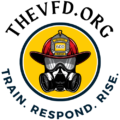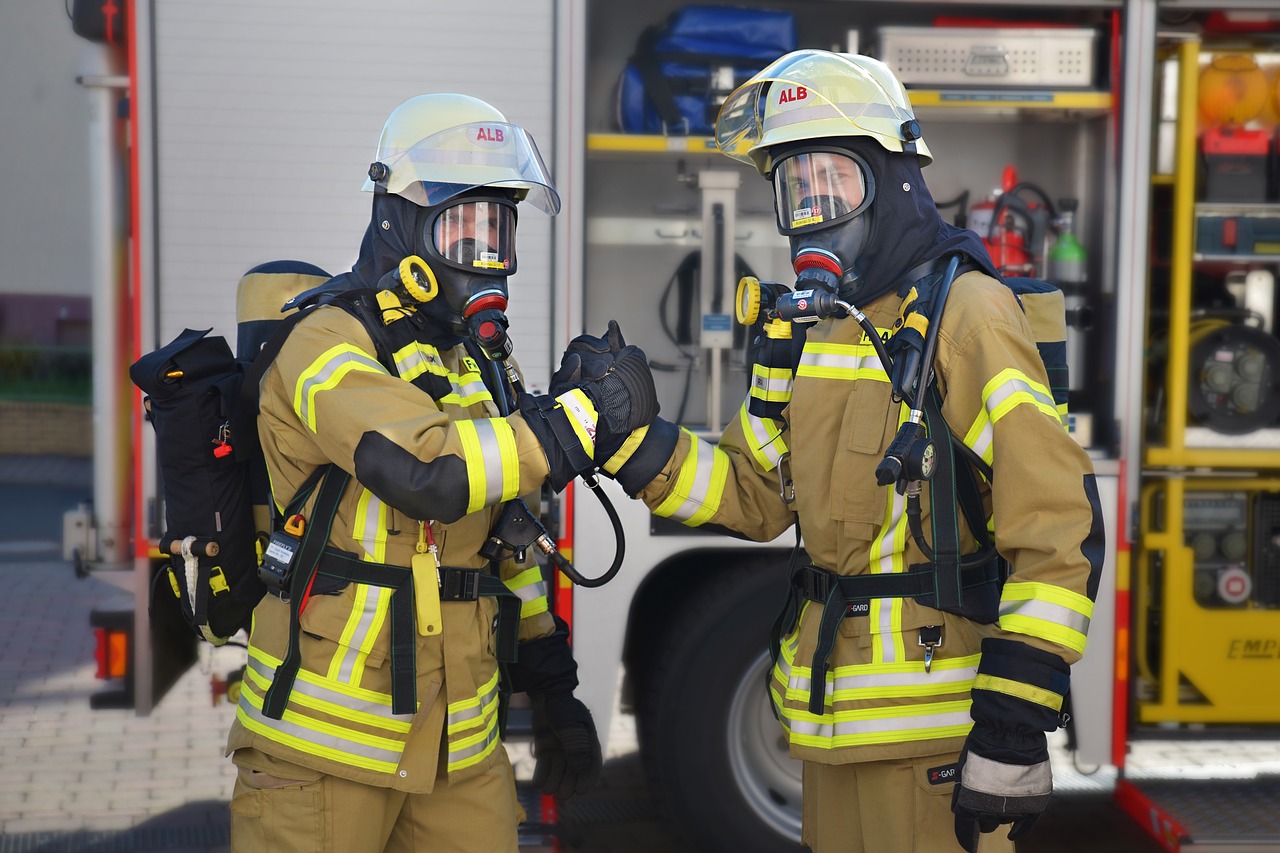Just imagine you arrive at a scene filled with chaos, urgency, and uncertainty. As a volunteer firefighter, every second counts when making decisions under pressure. In this guide, you will learn necessary tips and strategies to help you stay calm and make quick, effective decisions in challenging situations. Equip yourself with the knowledge and skills needed to save lives and keep your community safe.
Understanding the Importance of Quick Decision-Making
The ability to make quick decisions under pressure is a crucial skill for volunteer firefighters. When responding to an emergency situation, you often have to think on your feet and make split-second choices that can have a significant impact on the outcome. Understanding the importance of quick decision-making can help you effectively navigate high-stress situations and ensure the safety of yourself and others.
Types of Decisions Volunteer Firefighters Need to Make
As a volunteer firefighter, you will encounter a variety of decisions that need to be made quickly. These decisions may include determining the best course of action in a fire or medical emergency, assessing risks to yourself and others, and coordinating with your team to execute a plan. Quick decision-making is necessary in prioritizing tasks, allocating resources, and adapting to rapidly changing circumstances. Though practice and training, you can enhance your ability to make effective decisions under pressure.
| Decision-Making | Description |
| Risk Assessment | Evaluating potential dangers and determining the safest course of action. |
| Resource Allocation | Assigning equipment, personnel, and tasks to address the emergency effectively. |
| Task Prioritization | Deciding which tasks need to be completed first based on their level of urgency. |
| Team Coordination | Communicating and collaborating with your team to ensure a cohesive response. |
| Adaptability | Adjusting plans and strategies as the situation evolves. |
Consequences of Delayed Decision-Making in Emergency Situations
While it’s natural to feel overwhelmed in emergency situations, delayed decision-making can have serious consequences for you and those you are trying to help. The longer you take to make a decision, the greater the potential risks and threats may become. In high-pressure environments, quick and decisive action can mean the difference between a successful outcome and a tragic one.
Make sure to prioritize your decisions based on the urgency of the situation and always consider the safety of yourself and others first. Remember that in emergency response, timely decision-making is key to minimizing harm and maximizing effectiveness.
Factors Affecting Decision-Making Under Pressure
You, as a volunteer firefighter, may find yourself facing challenging situations that require quick decision-making under pressure. Several factors can impact your ability to make sound decisions in these moments. Understanding these factors is crucial for improving your decision-making skills and ensuring the safety of yourself and others.
Under Physical and Mental Fatigue
Under physical and mental fatigue, your ability to make quick decisions may be compromised. Fatigue can slow down your cognitive processes, making it difficult to assess situations accurately and respond effectively. It’s important to prioritize rest and self-care to maintain peak performance levels during emergencies. Recognizing the signs of fatigue and taking breaks when needed can help you make better decisions under pressure.
If Limited Information and Uncertainty
If you are facing limited information and uncertainty, it can be challenging to make quick decisions with confidence. In such situations, it’s important to gather as much relevant information as possible and rely on your training and experience to fill in the gaps. Trusting your instincts and being adaptable to changing circumstances can help you navigate uncertainties and make informed decisions under pressure. Decision-making under limited information requires critical thinking and the ability to weigh different options quickly.
Decision-making under pressure is a skill that can be developed and honed through practice and experience. By regularly putting yourself in challenging scenarios and reflecting on your decisions afterward, you can improve your ability to think quickly and effectively during emergencies.
On Team Dynamics and Communication
On team dynamics and communication, effective teamwork is vital for making quick decisions under pressure. Clear communication among team members can help ensure that everyone is on the same page and working towards a common goal. Strong team dynamics built on trust and collaboration can enhance decision-making processes and increase the likelihood of successful outcomes during emergencies.
Tips for Improving Decision-Making Skills
Once again, being a volunteer firefighter requires you to make quick decisions under pressure. To improve your decision-making skills in emergency situations, consider the following tips:
Staying Calm and Focused
Clearly, one of the key factors in making effective decisions under pressure is your ability to stay calm and focused. When faced with a crisis, take a moment to breathe and center yourself before assessing the situation and deciding on a course of action. Remember that panicking will only cloud your judgment and hinder your ability to make sound decisions.
Assume that by maintaining a calm demeanor and keeping your focus, you can think more clearly and make better choices in high-stress situations.
Prioritizing Tasks and Assessing Risks
While under pressure, it’s vital to prioritize tasks and assess risks quickly and effectively. Identify the most critical tasks that need to be addressed first and evaluate the potential risks associated with each decision you make. This will help you allocate your resources efficiently and minimize hazards.
Calmly analyzing the situation, you can determine which tasks require immediate attention and which can be addressed later, allowing you to respond effectively in emergency scenarios.
Effective Communication and Delegation
Prioritizing effective communication and delegation is crucial in ensuring that tasks are completed efficiently and that everyone remains informed and coordinated during emergencies. Clearly convey information to your team members, and assign tasks based on each individual’s strengths and capabilities.
For instance, by clearly communicating your objectives and delegating tasks accordingly, you can streamline operations and ensure that crucial actions are taken swiftly and accurately.
A Step-by-Step Guide to Making Quick Decisions
Many times as a volunteer firefighter, you will find yourself in situations that require you to make quick decisions under pressure. Having a structured approach can help you navigate these high-stress moments effectively. Here is a step-by-step guide to making quick decisions:
Situation Assessment and Size-Up
| Some | You should assess the situation quickly and gather as much information as possible. This includes identifying the type of emergency, the size of the incident, and any potential hazards. Once you have a clear understanding of the situation, you can begin to formulate a plan of action. |
Identifying Options and Weighing Pros and Cons
| Clearly | When identifying your options, consider all possible courses of action and their potential outcomes. It’s vital to weigh the pros and cons of each option to determine the best course of action. Here is a breakdown of the pros and cons: |
| Pros | Cons |
| Quick evacuation | Potential for missing critical details |
| Immediate action | Risk of overlooking alternative solutions |
| Minimizes potential damage | Possibility of increased danger |
Making a Decision and Executing a Plan
Step by step, you should evaluate all the pros and cons of each option to make an informed decision. Once you have made a decision, it’s crucial to act swiftly and execute your plan effectively. By following these steps, you can make quick decisions under pressure confidently and effectively.
On making a decision and executing a plan, remember to communicate your decisions clearly to your team members and adapt as needed based on the evolving situation. Your ability to make quick decisions can make a significant impact on the outcome of an emergency situation.
SizeUp: When assessing a situation, it is vital to identify the critical details quickly, acknowledge any potential dangers, and recognize any positive elements that could influence your decision-making process.
Common Decision-Making Pitfalls to Avoid
Now, as a volunteer firefighter, it’s crucial to be aware of common decision-making pitfalls that can hinder your ability to make quick and effective decisions under pressure. By recognizing these pitfalls, you can better navigate challenging situations and ensure the safety of those you are helping.
Impulsive Decisions and Emotional Reactivity
Assuming you may feel overwhelmed or stressed in a high-pressure situation, **it’s important to be wary of making impulsive decisions based on your emotions**. Your emotions can cloud your judgment and lead you to make hasty choices that may not be in the best interest of the situation at hand. **Take a moment to pause, breathe, and assess the situation objectively before making a decision**. This will help you avoid reacting impulsively and allow you to make a more informed choice.
Analysis Paralysis and Overthinking
Some situations may trigger **a tendency to overthink and analyze every possible outcome, causing delays in making a decision**. While it’s important to consider your options thoroughly, spending too much time deliberating can be counterproductive in emergency situations. **Trust your training, rely on your instincts, and remember that sometimes a quick decision is better than no decision at all**.
Another common pitfall is **getting stuck in a loop of second-guessing yourself**, which can lead to indecision and inaction. **Remember that it’s okay to make mistakes**; what’s important is that **you make a decision and take action to address the situation**.
Groupthink and Lack of Dissent
Dissent among team members is crucial in ensuring **that all perspectives are considered and that potential flaws in your decision-making process are identified**. Avoid the trap of groupthink, where **everyone agrees without questioning or challenging the proposed course of action**. Encourage open communication and welcome differing opinions to **promote a more comprehensive decision-making process**.
This can help **you avoid overlooking critical details or rushing into a decision without considering all possible consequences**. **Remember that a diverse range of viewpoints can lead to better outcomes in challenging situations**.
Pros and Cons of Different Decision-Making Approaches
All decision-making approaches have their own set of pros and cons that you should consider when faced with making quick decisions under pressure. Here is a breakdown of the advantages and disadvantages of different methods:
| Approach | Pros and Cons |
| Autocratic Decision-Making | Pursuing a Career as a Volunteer Firefighter: A Step-by-Step … |
| Collaborative Decision-Making | Pursuing a Career as a Volunteer Firefighter: A Step-by-Step … |
| Intuitive Decision-Making | Pursuing a Career as a Volunteer Firefighter: A Step-by-Step … |
| Analytical Decision-Making | Pursuing a Career as a Volunteer Firefighter: A Step-by-Step … |
| Decentralized Decision-Making | Pursuing a Career as a Volunteer Firefighter: A Step-by-Step … |
| Centralized Decision-Making | Pursuing a Career as a Volunteer Firefighter: A Step-by-Step … |
Autocratic vs. Collaborative Decision-Making
Decision-making in a high-pressure situation as a volunteer firefighter requires you to consider the pros and cons of different approaches. In autocratic decision-making, you have the authority to make quick decisions without consulting others, which can be efficient in emergencies. On the other hand, collaborative decision-making involves gathering input from team members, fostering teamwork and potentially leading to more well-rounded decisions. Each approach has its benefits and drawbacks, and understanding them can help you navigate challenging situations effectively.
Intuitive vs. Analytical Decision-Making
In terms of intuitive decision-making, you rely on your instincts and gut feelings to make quick decisions under pressure. This approach can be beneficial in fast-paced situations where time is limited and requires swift action. Analytical decision-making, on the other hand, involves gathering data, analyzing the information, and making a rational choice based on facts. Both methods have their advantages, and knowing when to trust your intuition and when to rely on evidence can be crucial in emergency situations.
With a clear understanding of the pros and cons of intuitive and analytical decision-making, you can enhance your ability to make quick and effective decisions as a volunteer firefighter. By honing your skills in both approaches, you can adapt to various scenarios and ensure the safety of yourself and others in challenging circumstances.
Decentralized vs. Centralized Decision-Making
On the spectrum of decision-making approaches, you have decentralized and centralized methods to consider when responding to emergencies as a volunteer firefighter. Decentralized decision-making empowers individual team members to make decisions independently, promoting flexibility and quick action. Centralized decision-making, on the other hand, involves a single authority figure making decisions for the group, ensuring uniformity but potentially causing delays. Understanding the nuances of these approaches can help you determine the most effective strategy in different situations and enhance your decision-making skills under pressure.
Plus
It is important to remember that no single decision-making approach is superior in all situations. Being able to adapt your approach based on the specific circumstances you face is crucial for making quick and effective decisions as a volunteer firefighter. By understanding the pros and cons of different methods, you can develop a versatile decision-making toolkit that will serve you well in the field.
Summing up
Upon reflecting on the importance of making quick decisions under pressure as a volunteer firefighter, remember that your ability to act decisively can make a significant difference in emergency situations. By staying calm, assessing the situation, and considering all possible options, you can make informed decisions that can save lives and protect property.
Keep in mind that practice and training are key to enhancing your decision-making skills under pressure. By regularly participating in drills and scenarios, you can build confidence in your abilities and improve your response time during emergencies. Keep in mind, as a volunteer firefighter, your quick decisions have the power to make a positive impact in your community.


